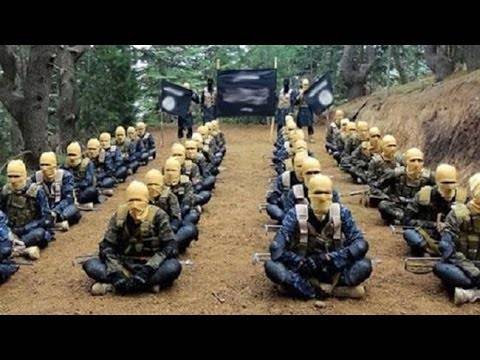Unidentified helicopters providing weapons to ISIS in Afghanistan: Russia seeks UN probe result
Shares

Moscow has said it hopes to receive a comprehensive response from the UN Assistance Mission in Afghanistan (UNAMA) and NATO regarding the helicopters without identifying insignia which deliver weapons to the militants of the Daesh terrorist group to Afghanistan, Zamir Kabulov said.
"In this context, we are particularly concerned by the foreign sponsorship of the Afghan affiliate of Daesh. We have repeatedly drawn attention to the cases of the use of helicopters without identifying insignia in various regions of Afghanistan to transfer Daesh militants and deliver Western equipment provided for the terrorist group," Kabulov said.
According to the diplomat, Moscow raised this issue during a UN Security Council session and it expects to receive a clear response on the issue from the UNAMA.
"We are regularly asking our NATO partners, who are in fact controlling the airspace over Afghanistan, about this issue, but we have not heard any reasonable answer yet," Kabulov stressed.
On Daesh in Afghanistan
There are more than 10,000 Daesh fighters in Afghanistan, and their number increases due to militants coming from Syria and Iraq, Zamir Kabulov noted.
"Russia was among the first to be sounding the alarms in connection with the emergence of Daesh in Afghanistan… Daesh has significantly increased its power in the country recently. According to our estimates, the number of militants exceeds 10,000 and continues to grow, particularly due to new fighters arriving from Syria and Iraq," Kabulov said.He pointed out that the Daesh militants were concentrated in the northern Afghanistan, on the country's border with Tajikistan and Turkmenistan.
Kabulov stressed that the situation in the provinces of Jowzjan and Sar-e Pol were of particular concern since citizens of Algeria and France were identified among terrorists there.
"Daesh has a clear aim of spreading influence beyond Afghanistan, which they consider to be their stronghold. This poses a serious security threat, especially for the Central Asian countries and the southern regions of Russia," Kabulov added.
On Fact-Finding Mission
There is no point in establishing a Russian-Afghan fact-finding mission to find evidence of providing assistance to the Taliban terrorist group (banned in Russia), instead an international mission should be created to investigate not only ties with Taliban, but other terror groups as well, the diplomat said.
In November, Afghan National Security Adviser Mohammad Atmar said that Kabul offered Moscow and partners in the Central Asia and the West to establish a fact-finding mission to investigate ties between third countries and Taliban.
"As for establishing a Russian-Afghan commission, which was mentioned during the visit of Russian Security Council Secretary Nikolai Patrushev to Kabul in October, we do not see any sense in this. If it is about an international commission with participation of the United Nations, then such a mechanism should focus on detailed and comprehensive investigation of the facts of the third states' assisting not only Taliban, but all other terrorist groups in Afghanistan," Kabulov said.In August, US Secretary of State Rex Tillerson, asked about Russia’s alleged support for Taliban, said that to the extent Russia was supplying arms to the Taliban, it was a violation of international norms. Russian officials refuted the claims and said that Moscow had never supported the group.
Conditions in Afghanistan remain harsh as the country has long been suffering from an unstable political, social and security situation due to the simmering militant insurgency, including that of the Taliban.
